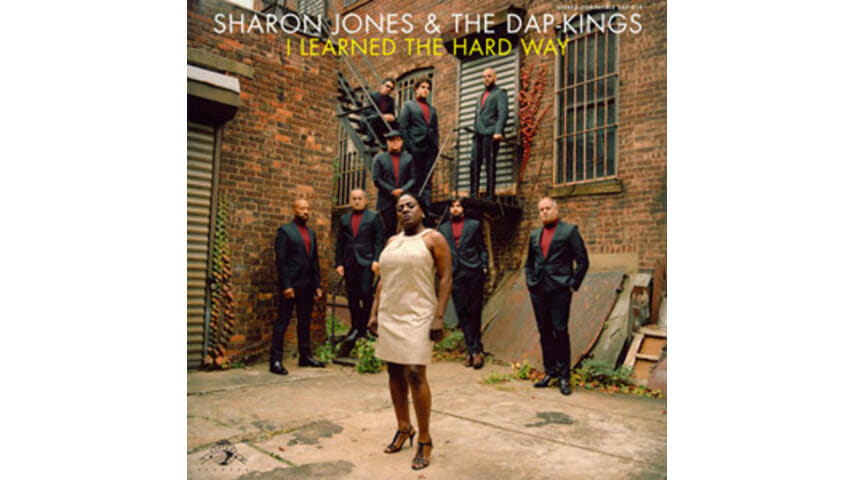Sharon Jones & the Dap-Kings: I Learned the Hard Way

A musical breakthrough years in the making
Talk about a late bloomer. Sharon Jones was brimming with promise as a kid in church choirs in the 1960s, as she bounced back and forth between her birth city of Augusta, Ga. and her mother in Brooklyn. She also had a foot firmly planted in the world of secular music, spending countless hours imitating the songs and dances of fellow Augusta native James Brown. As a teen in 1970s New York, Jones flirted with fame, making many uncredited appearances as a backup singer on gospel, soul, blues and disco recordings. But when the neon-flash ’80s hit, her style was suddenly considered outdated. To support herself, she worked as a prison guard at Rikers Island (which surely came in handy later while shaking down sketchy promoters who dared hold out on her at the end of the night).
In the late ’90s, then-fortysomething Jones made another go at a music career, releasing her first solo work, a series of 45-rpm vinyl singles for the retro-minded Desco label. But it wasn’t until 2002 that she dropped her first solo LP, Dap-Dippin’, or until 2007 that she released her first standard-worthy song, “100 Days, 100 Nights”; now, at age 53, she has released her first truly great album, I Learned the Hard Way.
I’ve often heard the argument made—especially by wizened rock critics and music-industry vets—that all the young ’uns mesmerized by Jones and the Dap-Kings have been duped into believing that what would’ve been a dime-a-dozen soul revue back in the day is in the league of the all-time greats, thanks to the near-complete absence of authentic soul music in our digital age. I can see the merits of this idea: Jones’ first three records were solid, chronicling a measured shift from aggressive ’70s funk to melodic ’60s soul—but while the musicianship was strong, Jones’ vocals incinerating and bandleader Bosco Mann’s throwback production impressively authentic, the songs were mostly nondescript. They lacked hooks and choruses strong enough to put the leading lady into the company of the legends she and the Dap-Kings imitated.
-

-

-

-

-

-

-

-

-

-

-

-

-

-

-

-

-

-

-

-

-

-

-

-

-

-

-

-

-

-

-

-

-

-

-

-

-

-

-

-








































